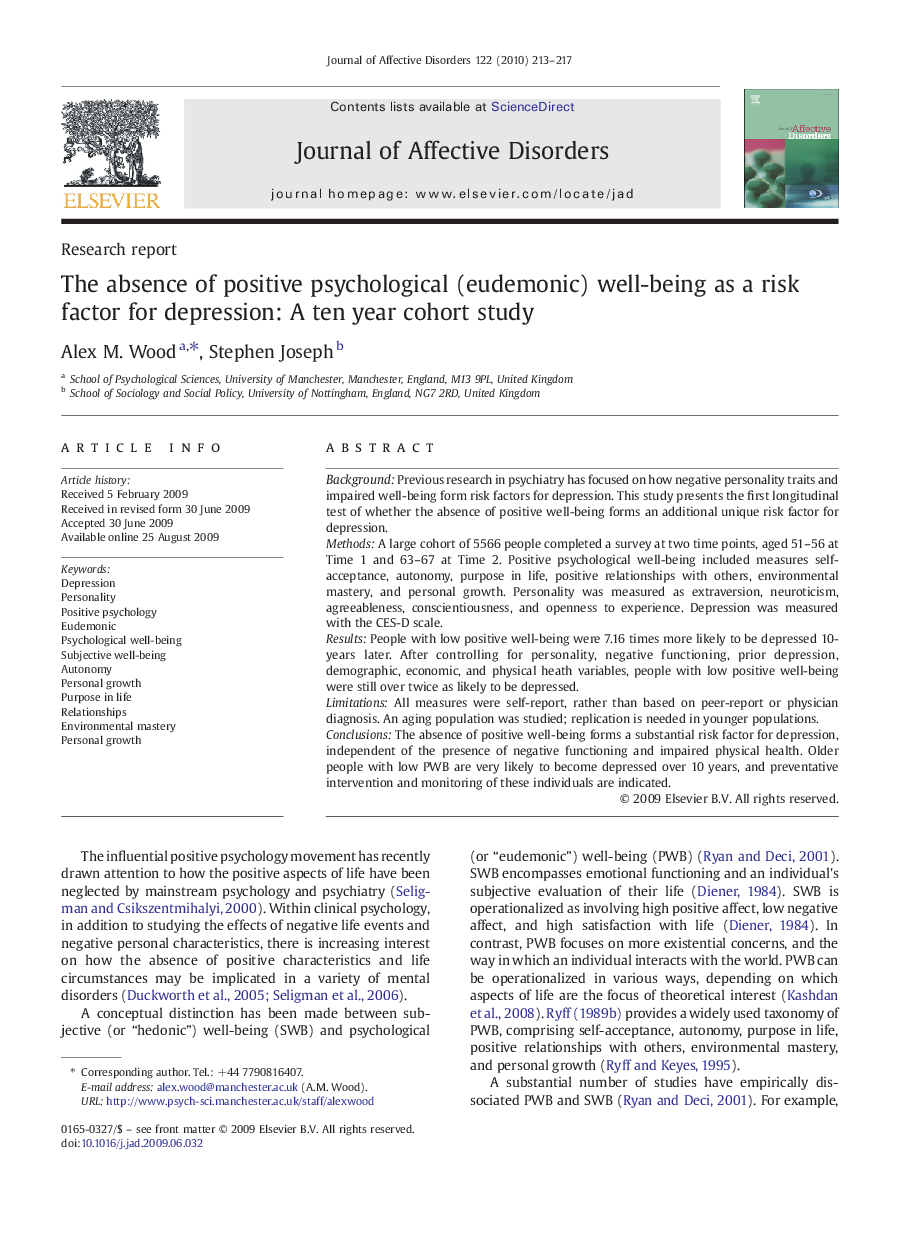| Article ID | Journal | Published Year | Pages | File Type |
|---|---|---|---|---|
| 4186863 | Journal of Affective Disorders | 2010 | 5 Pages |
BackgroundPrevious research in psychiatry has focused on how negative personality traits and impaired well-being form risk factors for depression. This study presents the first longitudinal test of whether the absence of positive well-being forms an additional unique risk factor for depression.MethodsA large cohort of 5566 people completed a survey at two time points, aged 51–56 at Time 1 and 63–67 at Time 2. Positive psychological well-being included measures self-acceptance, autonomy, purpose in life, positive relationships with others, environmental mastery, and personal growth. Personality was measured as extraversion, neuroticism, agreeableness, conscientiousness, and openness to experience. Depression was measured with the CES-D scale.ResultsPeople with low positive well-being were 7.16 times more likely to be depressed 10-years later. After controlling for personality, negative functioning, prior depression, demographic, economic, and physical heath variables, people with low positive well-being were still over twice as likely to be depressed.LimitationsAll measures were self-report, rather than based on peer-report or physician diagnosis. An aging population was studied; replication is needed in younger populations.ConclusionsThe absence of positive well-being forms a substantial risk factor for depression, independent of the presence of negative functioning and impaired physical health. Older people with low PWB are very likely to become depressed over 10 years, and preventative intervention and monitoring of these individuals are indicated.
